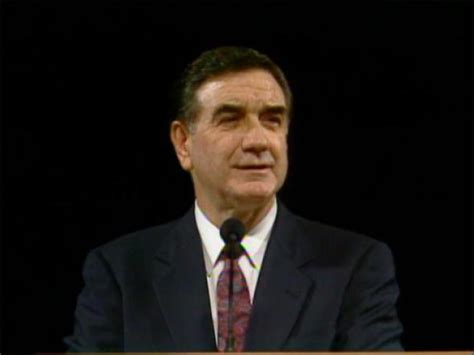A Quote by James Ellis
Our leisure is the time the Devil seizes upon to make us work for him; and the only way we can avoid conscription into his ranks is to keep all our leisure moments profitably employed.
Related Quotes
How we use our leisure is equally as important to our joy as our occupational pursuits. Proper use of leisure requires discriminating judgment. Our leisure provides opportunity for renewal of spirit, mind, and body. It is a time for worship, for family, for service, for study, for wholesome recreation. It brings harmony into our life.
Work is a blessing. God has so arranged the world that work is necessary, and He gives us hands and strength to do it. The enjoyment of leisure would be nothing if we had only leisure. It is the joy of work well done that enables us to enjoy rest, just as it is the experiences of hunger and thirst that make food and drink such pleasures.
Action is the music of our life. Like music, it starts from a pause of leisure, a silence of activity which our initiative attacks; then it develops according to its inner logic, passes its climax, seeks its cadence, ends, and restores silence, leisure again. Action and leisure are thus interdependent; echoing and recalling each other, so that action enlivens leisure with its memories and anticipations, and leisure expands and raises action beyond its mere immediate self and gives it a permanent meaning.
Many concerns now make part or the whole of their dividends from by-products that formerly went to waste. How do we, as individuals, utilize our principal by-product? Our principal by-product is, of course, our leisure time. Many years of observation forces the conclusion that a man's success or failure in life is determined as much by how he acts during his leisure as by how he acts during his work hours. Tell me how a young man spends his evenings and I will tell you how he is likely to spend the latter part of his life.
What is the benefit of fasting in our body while filling our souls with innumerable evils? He who does not play at dice, but spends his leisure otherwise, what nonsense does he not utter? What absurdities does he not listen to? Leisure without the fear of God is, for those who do not know how to use time, the teacher of wickedness.
We are unlikely to spend our last moments regretting that we didn't spend enough of our lives chained to a desk. We may instead find ourselves rueing the time we didn't spend watching our children grow, or with our loved ones, or travelling, or on the cultural or leisure pursuits that bring us happiness.




































